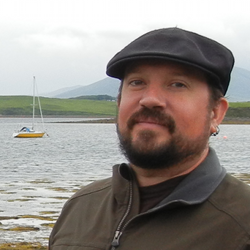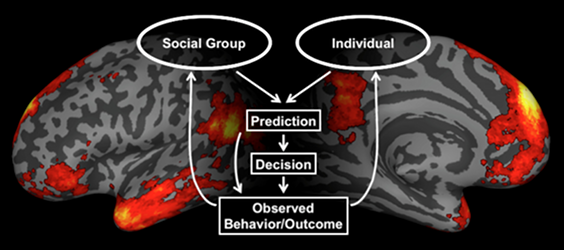

Damian A. Stanley
Email:
dstanley @ caltech.edu
Research Interests
How do we learn what people are like, as both individuals (e.g., a friend, a co-worker) and as members of social groups (e.g., Muslims, Americans, Republicans)? And once we’ve learned, how do we use that knowledge to make decisions about how to interact with others (e.g., should I trust him?, what would she enjoy doing?)? My research focuses on elucidating the neurocognitive mechanisms through which we construct, update, and recruit mental representations of both individuals and social groups. My long-term objective is to develop a computational account of the dynamic processes through which we integrate individual- and group- level social information to make decisions about other people across a multitude of contexts. To this end, I employ a multidisciplinary approach, integrating techniques from social and cognitive neuroscience, neuroeconomics, computational modeling, and clinical psychology to investigate how we learn about and mentally represent other people and social groups.
Specifically, my research addresses the following questions: 1) What neural computations underlie our ability to learn about other individuals’ traits and mental states (e.g., Theory of Mind; ToM) as well as the broader characteristics of social groups? 2) How do we integrate our representations of other minds with beliefs we hold about social group characteristics or social contexts, to make social decisions? 3) Are social learning and decision-making implemented through mechanisms specialized for social processing, or through more general learning mechanisms? 4) How are social learning and decision-making impaired in social disorders such as autism?
My theoretical model of social decision-making treats learned social group information and associations as a set of initial conditions (akin to Bayesian priors) that inform our social decision-making when we lack specific information about the individual(s) with whom we are interacting. Using these priors as a starting point, we update our mental representation of a given individual (as well as that of their social group) on the basis of observed behavior. The role of context can be represented at many points in the model – e.g., influencing factors such as what type of social group information is initially considered, how observed behaviors are weighted during updating, and how information is integrated prior to making a decision. My research to-date has examined the neural and psychological basis of two specific components of this model; 1) the influence of social group (i.e., race) information on novel social estimations and interactions, and 2) the computational processes through which we learn about individuals’ traits and idiosyncratic intentions (i.e., ToM) by observing their behavior. This second line of research, funded by my NIMH K01 “Mentored Research Scientist Development” award (co-mentored by Drs. O’Doherty and Adolphs), uses computational models to investigate the behavioral and neural basis of learning about other peoples’ minds in healthy populations, and its disruption in autism spectrum disorder (ASD)